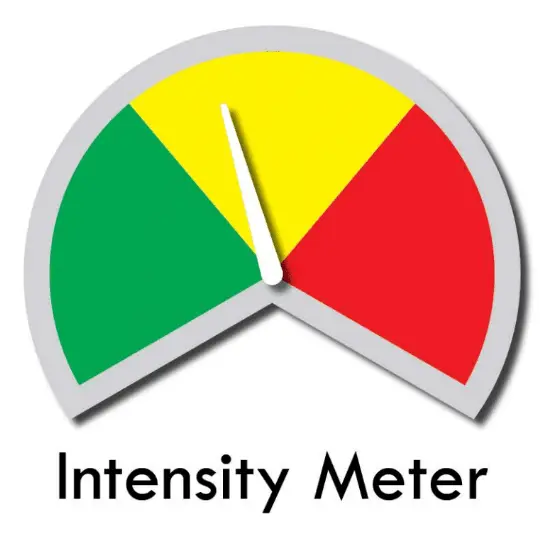Fight Flight Freeze: How Does Your Fear Of Rejection Show Up In Social Situations?

It is common for people with ADHD to feel emotions more intensely, to have less friends and fewer invites, and to experience greater rejection than our neurotypical peers.
Ever find yourself wanting to mingle and chat, yet you’re haunted by past mistakes?
Do you struggle to pay attention to the person you are talking to, but you’re overwhelmed by negative thoughts and self-criticism?
Have you over-reacted when someone doesn’t respond to your phone call, making you feel they are ignoring you, or even purposely trying to hurt you?
Can you get caught up in verbally processing what others are saying and then begin blurting out Too Much Information (TMI)?
Have you ducked into the restroom because your anxiety got too overwhelming?
The Result of Past Rejection
You have been rejected before, in fact, probably many times before. The result? Now, even little, perceived or expected rejection can make you feel uneasy and apprehensive.
The actual cause or intensity of the situation is often not proportional to the reaction. Even if we sense rejection, our bodies may go into Fight, Flight or Freeze mode – an ancient alert system designed to save us from a charging Saber Tooth Tiger! We end up in a terrifying cascade of emotions and reactions that feel terrible.
Rejection Sensitivity – What is it and How Does it Impact Adults with ADHD?
Rejection Sensitivity (RS) – “The tendency to anxiously expect, readily perceive, and intensely react to rejection.”
RS can be a huge issue for people with ADHD because of our difficulty in regulating emotions. Most of us have a long history of actual rejection. Feeling emotions intensely can actually physically hurt, which in turn impacts our willingness and ability to solidify meaningful relationships.
[For more on this important topic, watch the video on How to Deal With Rejection Sensitivity I created with Jessica McCabe of How to ADHD (If you have ADHD as an adult, you must check her out!]
Why “Just Reach Out” Isn’t So Simple
As an adult with ADHD, when we try to engage socially, we often personally interpret even the slightest change in tone or response to text or comment, which in turn triggers Rejection Sensitivity.
You may get angry, cry, or say things that will eventually lead to the rejection. To avoid these sensations, many of us end up people-pleasing, not inviting others or not asking for what we need or is in our best interest.
How Intense is The Emotion?
I created a tool – The 4 R’s – to help you gauge an emotion’s intensity. Each step centers on helping you figure out how intense your emotions feel in order and what strategies to employ.
Get Your Free Download of the Intensity Meter

Recognize – Step #1 –
Identify the intensity of the emotion(s). Are you in the “Red”: Is your face flushed? Are you fighting back tears? Is your stomach or fist clenched? Or are you in neutral Yellow or relaxed Green? The higher emotions go up, the more cognitive ability goes down.
Respond – Step #2 –
Recognize where you are on the intensity meter and respond with an appropriate strategy.
Green – This is the lowest of intensities, where you are primarily in a positive space. You can engage in dopamine production strategies such as walking in bare feet (a grounding activity), sewing, doing crafts, and engaging in guided meditation. This is a time to implement daily preventative strategies to help you cope with inevitable stressors and triggers.
Yellow – This is the middle ground of intensity, as you are elevated emotionally yet still have control over your emotions. Employ the portable strategies you have developed during the Green phase in order to calm your limbic system and help avoid moving into Fight, Flight or Freeze. Avoid conflict and put your energy into getting back into the Green. Walk the dog, take deep breaths in and out, engage in something creative or a mindfulness activity, cuddle a pet, or meditate. I recommend a technique called Havening to self-soothe and calm your limbic system [Learn More: Havening.org https://www.youtube.com/watch?v=4J8FI8I3rwg]
Red – In this state, you may be entering Fight, Flight or Freeze mode. When emotions are in the red – or very high – it is not the time to act out, bring up heated topics or ask for things that may not be granted. Quickly take advantage of the calming strategies you have developed in advance. I find physical activities to lessen the effects of increased blood pressure, struggles breathing and a rapid heart rate are best in order to prevent falling into the Fight, Flight and Freeze cycle. These include jogging or jumping jacks to expel energy and increase serotonin and dopamine levels.
3. Reflect – Step #3 –
Double, triple check your reasoning. Ask yourself, “What story am I telling myself?” “What evidence is there that this story is true?” “What else could it be?” This is super important because our initial interpretation of a situation is often incorrect due to heightened emotions or personalization. Further, when we perceive rejection, even if it isn’t true, we will be more likely to react and anticipate rejection in the future.
4. Reframe – Step #4 –
Consider other possible reasons for their response. Perhaps they didn’t accept the invitation because they were busy, or already saw that movie. Often, what we perceive as rejection is just a conflict of needs.
What If You Need More Help?
Healthy, realistic interpretations of others’ reactions is critical for your emotional wellbeing. If these strategies don’t work for you, or if RS is a significant issue for you, consider working with a therapist. Evaluating past situations can help you move forward in a more confident manner. In addition, Cognitive Behavioral Therapy (CBT) and Dialectical Behavioral Therapy (DBT), a form of CBT, or even a CBT workbook that you can use on your own, can help you work through these issues.
What if All of This is Still Not Working?
If this is the case, work on your social skills to help reduce the risk of being rejected in the future. My upcoming workshop may be just the ticket! Master Class – How To Stop OverSharing As An Adult with ADHD
Social Skills in Action –
Become your best self: socially engaged, confident, and open to the unlimited world of learning and connection.
More actionable advice, exercises and videos can be found in the Store
Master Class – How To Stop OverSharing As An Adult with ADHD
How to Deal With Rejection Sensitivity
Don’t wait to seek help. Trust your gut
Building social capital is critical for strong relationships. ADHD can get in the way.
How to Coach Your Child – Kids need good role models. Skills like listening and communication are critical. This exclusive program for parents teaches how to coach your kids for life.
Rusty Social Skills Bundle – Everything you need to help students return to the classroom for the development of critical social skills.
Coaching Conversations Video Course – How to use the lessons in Why Will No One Play with Me? in everyday life using real people and real scenarios
From “Hi” to a Full Conversation – How to adapt conversation starters to initiate small talk.
Joining a group Infographic – Make joining a group less intimidating – and more fun!
Building a Conversation Infographic – Learn how to engage in reciprocal give-and-take
Steps for Joining a Group Video – Step by step details to comfortably and successfully join a group
How to Read the Room as an Adult – Managing perceptions and engaging successfully
How to SEL – HOW TO help children build social skills



